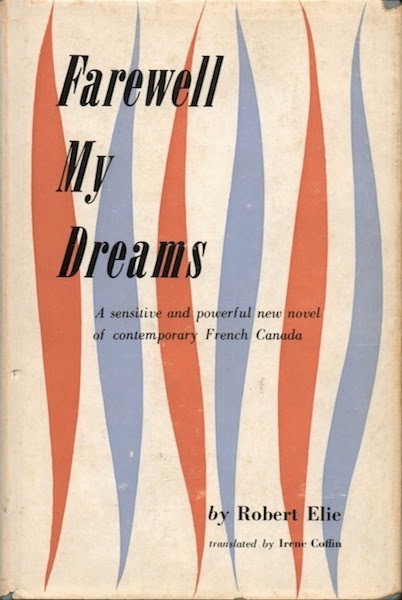Last Tuesday's post marked the one thousandth since this blog began. I saw it coming, took my eye off the ball, and didn't notice when it hit. Nevertheless, that post, on a lost film adaptation of a once-popular work by one-time bestselling author Ralph Connor, seems appropriate enough. The Dusty Bookcase began in early 2009, with a review of novelist Brian Moore's suppressed debut Sailor's Leave (a/k/a Wreath for a Redhead). The idea back then, as it is now, was to read and review all the suppressed, ignored and forgotten Canadian books I've been collecting.
I'm falling behind.
One thousand. I thought I'd mark the start of second thousand by listing the ten most visited posts in this blog's history. For obvious reasons, older posts have an advantage. These aren't necessarily my favourites, you understand, but the fans have spoken!
1
A collection of covers (with commentary) depicting the heroine of Governor General's Award-winning poet John Glassco's pornographic novel. I suspect it's popularity was boosted somewhat by a New York dominatrix's use of the same name.
The post was later expanded upon – more images – for A Gentleman of Pleasure, the blog used to promote my Glassco biography of the same same.
2
3
She haunts us still, I suppose, but then so do the rest of the family. Another Trudeau title features below, and pretty much everything I wrote that included the surname proved popular: Sex and the Trudeaus: The Bachelor Canada, Sex and the Trudeaus: Son and Hair, Pierre Trudeau's Letter to the Children of Troy, Trudeau Redux: Compare and Contrast, Trudeau Redux: Compare and Contrast II, Wishing the Prime Minister Dead, Trudeaumania II.
My posts on Stephen Harper – on his forgotten speech and his forgotten hockey book – deserve more attention.
A revised and expended version of the post on Margaret Trudeau: The Prime Minister's Runaway Wife features in my forthcoming book, The Dusty Bookcase.
4
I had an awful lot to say about this awful book and the awful television series that encouraged its publication – so much that I had to cut it in half. Both halves will feature – revised – in the forthcoming Dusty Bookcase book.
Have I mentioned it can be bought here?
5
Forget VDM, no print on demand publisher has given me more enjoyment than Tutis Classics. This was my first post about these crooks, though my favourite is It's Tutis Time, posted a few weeks later. Sadly, Tutis is no more. Fortunately, their covers remain.
6
Maria Monk's Immortal Book
My earliest writing on Awful Disclosures of Maria Monk (1837), the oldest book reviewed here, proved to be one of the most commented upon posts in the blog's eight years. The book and associated scandale are also the subjects of ongoing research and a future book.
7
Galt's Damaged Pastor Novelist
A post about the forgotten and unlucky Robert E. Knowles, whose debut novel, St. Cuthbert's, was the most torturous read of my life.
8
Who dares deny the popularity of Harriet Marwood? Posted less than a month into the blog, this piece on The English Governess was the third in a four-part series focussing on the four Olympia Press titles written by Canadians: Diane Bataille's The Whip Angels, John Glassco's complete of Aubrey Beardsley's Under the Hill (by far the most attractive volume the press ever produced), Glassco's pseudonymously published The English Governess, and Jock Carroll's Bottoms Up (inspired by his assignment to photograph Marilyn Monroe at Niagara Falls).
The English Governess is the best of the lot.
9
A slight post about a slim book of humour, I can't quite get over its popularity. Michelle Le Grand, Alison Fay, I'd love to hear from you!
10
It may be word "pornography". Seven years ago, a post I'd titled A Prudish Policewoman's Porn attracted visitors by the thousands. Click on the link and imagine their disappointment!
Must say, I find the popularity of this old post, which draws on images from various editions of Awful Disclosures of Maria Monk, encourages work on my Maria Monk book.
More to come. For now, I'd like to thank readers and fellow bloggers who have been supportive these past one thousand posts: Patti Abbott, John Adcock, Bowdler, Curtis Evans, Le Flâneur, Kristian Gravenor TracyK, Leaves & Pages, Jean-Louis Lessard, Melwyk, J.R.S. Morrison, J.F. Norris, Noah Stewart, and the late, much-missed Ron Scheer. The Dusty Bookcase would've become mouldy without you.


























































